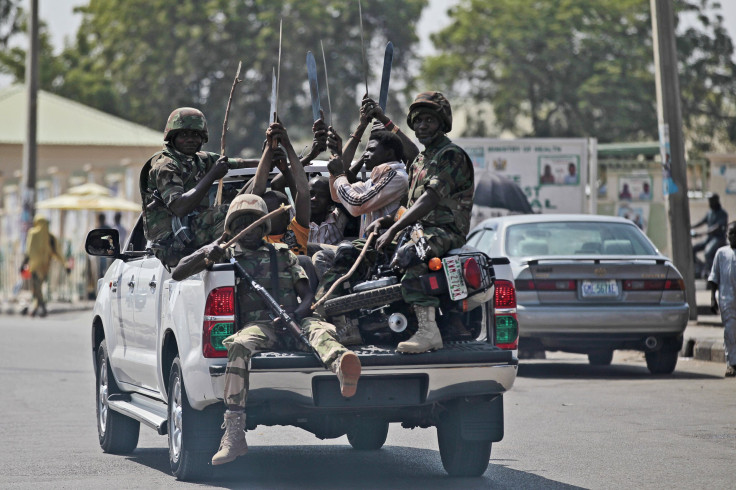Nigerian Troops Accused Of Killing Dozens Of Civilians In Revenge Attacks

Nigerian troops have been accused of killing up to 80 civilians in the Wase region of the central Plateau State in multiple attacks over the weekend. The attacks were reportedly carried out to avenge the deaths of six Nigerian soldiers, allegedly killed last week by members of the Tarok tribe.
"Soldiers stormed some villages in Wase. Villages belonging to Tarok and other tribes were razed and many lives, men, women and children, were lost," Jangle Lohbut, a local community leader, reportedly said, while a resident told Reuters: "I saw people killed deliberately by the soldiers. Some ran to the river but could not escape. They were caught by the bullets."
Shafi'i Sambo, a youth leader from Wase, reportedly said the attacks on villagers came after the killings and mutilations of six soldiers by Tarok youths on Thursday. During last week's attacks on Nigerian military personnel, the soldiers' eyes were gouged out, their tongues were slit and they were beheaded, Al Jazeera reported, citing residents who spoke on the condition of anonymity.
The Nigerian army, however, denied targeting civilians, and reportedly said that one of its units had been involved in a gun battle with a local militia group in the region over the weekend.
"Yesterday, contact was made with the militia group and a firefight ensued. It is still going on," Ikedichi Iweha, a Nigerian army official, reportedly said late on Sunday, adding that reports of alleged attacks on civilians would be investigated.
This is not the first time the Nigerian military has been accused of deliberately targeting civilians. Last year, Amnesty International and the United Nations alleged that security forces in the strife-torn nation had committed human rights abuses, including extrajudicial killings, torture and illegal detention of suspects, in their fight against the Islamist militant group Boko Haram.
"Many people I have met with during this visit openly acknowledge human rights violations have been committed by the security forces," Navi Pillay, who served as the U.N. high commissioner for human rights from 2008 to 2014, said, after a visit to Nigeria in March last year. "These have served to alienate local communities, and created fertile ground for Boko Haram to cultivate new recruits."
© Copyright IBTimes 2024. All rights reserved.












